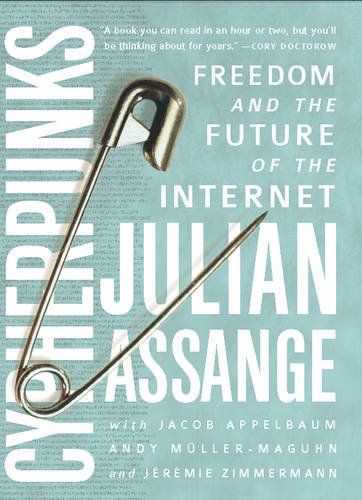In a recent feature article at The clubof.info Blog called “Striving to be Snowdenlike”, I look at the example of Edward Snowden and use his precedent to make a prediction about “transhumans”, the first people who will pioneer our evolution into a posthuman form, and the political upheaval this will necessarily cause.
Transhumanism makes a prediction that people will obtain greater personal abilities as a result of technology. The investment of more political power (potentially) in a single person’s hand’s has been the inexorable result of advancing technology throughout history.
Politically, transhumanism (not as a movement but as a form of sociocultural evolution) would be radically different from other forms of technological change, because it can produce heightened intellect, strength and capability. Many have assumed that these changes would only reinforce existing inequality and the power of the state, but they are wrong. They have failed to note the political disconnect between current government authority figures and political classes, and those people actually involved in engineering, medicine, military trials, and the sciences. Transhumanism will never serve to reinforce the existing political order or make it easier for states to govern and repress their people. On the contrary, transhumanism can only be highly disruptive to the authorities. In fact, it will be more disruptive to current liberal democratic governments than any other challenge they have witnessed before.
There are several realities to this disruption that will convey a profound political change, and would do so whether or not transhumanism pursued political power in the form of the Transhumanist Parties (I still support those parties wholeheartedly due to their ability to raise awareness of transhumanism as a concept and an observation by futurists) or took a political stance for or against these realities. I would narrow the disruption down to these very compelling points of political significance. Please advise any more that you would like to bring to my attention:
- Some of us will evolve into posthumans prior to others.
- Such evolution will not be contingent on station, celebrity, political office, political ideology, leadership ability, or other traditional elite criteria.
- Such evolution will be contingent on injuries (in the case of medical enhancements), vocation (e.g. astronauts), military trials (power armor or other, more invasive enhancements), long before it is marketed to members of the political elite or government authority figures who prefer to stay aloof and avoid taking risks with their lives.
- This will create a disconnect, early on, between the political elite and the first evolved, posthuman persons.
Therefore, the posthuman elite will not be the current elite, but a completely different elite. Not only this, but they will have a completely different attitude towards authority that will be very disruptive to the status quo:
- The evolution will create a high-tech “elite” (but only in the sense of capability, and not rule) with a high degree of autonomy.
- Since all members of the new elite will have the same ability to function alone beyond the abilities of a normal human, they will be able to function without reliance on a hierarchy, even among themselves.
- Since all will have superior capabilities to those who are not evolved, they will have no desire or need to rule over the people who are not enhanced, as they will not need them.
- They will function as titans — extremely powerful individuals capable of achieving their political aims single-handedly, independently of organizations or governments (much as Snowden did).
- The evolved people will be a potential “rebel elite” or “smart rats” (to use Julian Assange’s term from Cypherpunks) because they will not be part of the government authority structures. Their ethos and their political behavior will be the same as hackers, with the exception that they will be able to effect change in the real world in the way that hackers were only able to achieve them via computer systems.
- Like hackers, they will be dismissive of government authority, able to overcome government safeguards and defenses, and cognizant of government lies. And, like hackers, their power to subvert government authority will cause them to subvert it.
What happened with Snowden is not the first time we are going to witness a single heroic individual challenging existing power structures and winning against the world’s most powerful state.
If technology is going to invest greater power and responsibility into the hands of lone individuals who have been given privileges because of their personal abilities, those individuals are by definition going to be futuristic “insurgents”, at least some of whom will go as far as to dismantle the state. A government, being paranoid of anyone having merely the capability to undermine it, will by definition attempt to curtail the freedoms of enhanced people.
Posthumans, including their early predecessors, will find themselves in the same situation as the current-day “cypherpunk” elite consisting of whistleblowers and hackers. They will listen to few authority figures, they will have the utmost disrespect for the government, and they will be more interested in sharing their abilities indiscriminately with others than adhering to rules laid down by authority figures or obeying the state.
The evolution into posthuman forms will bring with it a clash of ideas about how society should be governed.
